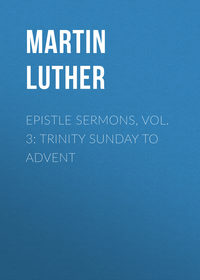Kitabı oku: «Epistle Sermons, Vol. 3: Trinity Sunday to Advent», sayfa 16
Bir şeyler ters gitti, lütfen daha sonra tekrar deneyin
Türler ve etiketler
Yaş sınırı:
12+Litres'teki yayın tarihi:
04 ağustos 2018Hacim:
480 s. 1 illüstrasyonTercüman:
Telif hakkı:
Public Domain